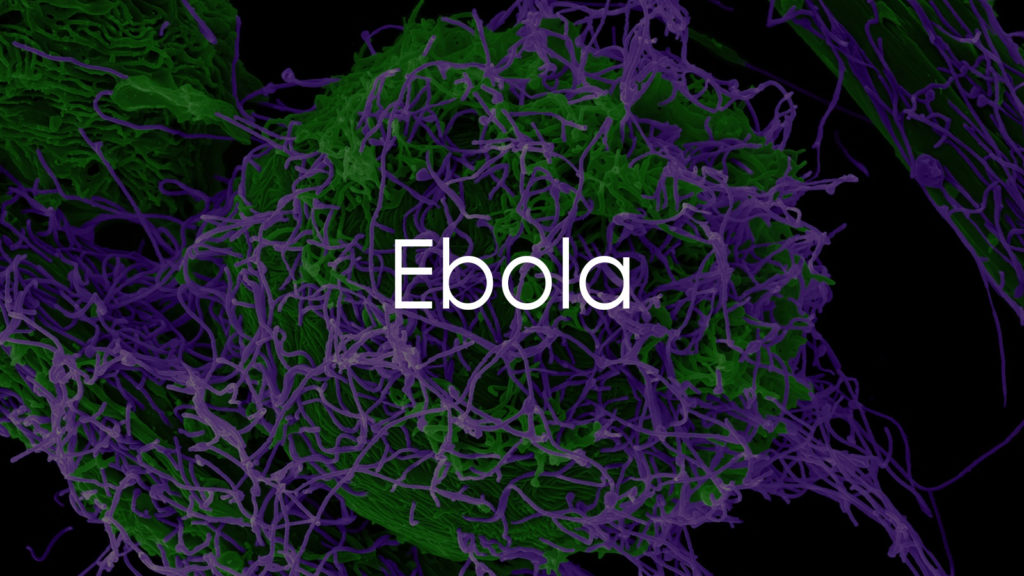Ebola virus disease (EVD) is a severe and often fatal illness affecting humans and nonhuman primates. Recognizing the symptoms of Ebola is crucial for early diagnosis, treatment, and containment of the virus.

Early Symptoms
Fever
High Fever
The onset of Ebola is usually marked by a sudden high fever, often exceeding 101.3°F (38.5°C). This fever typically appears within 2-21 days after exposure to the virus.
Fatigue
Extreme Weakness
Fatigue and extreme weakness are common early symptoms of Ebola. Patients often feel unusually tired and may find it difficult to perform everyday activities.
Muscle and Joint Pain
Myalgia
Myalgia, or muscle pain, is frequently reported by patients in the early stages of Ebola. The pain can be severe and affect various muscle groups.
Arthralgia
Arthralgia, or joint pain, often accompanies muscle pain. The pain can be intense and affect multiple joints, further contributing to the overall feeling of weakness and discomfort.
Gastrointestinal Symptoms
Nausea and Vomiting
Persistent Nausea
Nausea is a common symptom that can persist throughout the course of the illness. It often leads to vomiting, which can further dehydrate the patient.
Vomiting
Vomiting, sometimes severe, is a frequent symptom. It contributes to fluid loss and can lead to electrolyte imbalances if not managed properly.
Diarrhea
Severe Diarrhea
Severe diarrhea is another hallmark symptom of Ebola. It can lead to significant dehydration and electrolyte imbalances, requiring prompt medical intervention.
Abdominal Pain
Cramping and Discomfort
Abdominal pain, often described as cramping or general discomfort, is common. This pain can range from mild to severe and may be associated with gastrointestinal bleeding.
Respiratory Symptoms
Sore Throat
Severe Sore Throat
A severe sore throat often occurs in the early stages of Ebola. This can make swallowing painful and difficult, contributing to dehydration and nutritional deficiencies.
Cough
Persistent Cough
Some patients may develop a persistent cough. This respiratory symptom can be accompanied by chest pain and difficulty breathing in severe cases.
Neurological Symptoms
Headache
Severe Headache
A severe headache is one of the early symptoms of Ebola. The pain is often intense and persistent, affecting the patient’s ability to concentrate and function normally.
Confusion
Altered Mental Status
As the disease progresses, patients may experience confusion, disorientation, and other changes in mental status. This can be a sign of the virus affecting the central nervous system.
Hemorrhagic Symptoms
Internal Bleeding
Gastrointestinal Bleeding
Internal bleeding, particularly gastrointestinal bleeding, is a severe symptom of Ebola. Signs include vomiting blood (hematemesis) and passing black, tarry stools (melena).
Other Internal Bleeding
Bleeding can also occur in other internal organs, leading to additional complications and further weakening the patient.
External Bleeding
Bleeding from Orifices
In the later stages of Ebola, patients may experience bleeding from the eyes, nose, mouth, and other orifices. This external bleeding is a critical sign of the disease’s severity.
Petechiae and Purpura
Petechiae (small red or purple spots caused by bleeding under the skin) and purpura (larger areas of bleeding) can appear on the skin. These signs indicate significant capillary fragility and are common in severe cases.
Dermatological Symptoms
Rash
Maculopapular Rash
A maculopapular rash, characterized by small, flat, and raised red spots, can appear on the skin. This rash is often one of the early signs of Ebola and can spread across the body.
Ecchymoses
Bruising
Bruising, or ecchymoses, can occur due to the virus’s impact on the blood’s ability to clot. These bruises can be large and widespread, contributing to the overall appearance of hemorrhagic symptoms.
Immune System Symptoms
Lymphadenopathy
Swollen Lymph Nodes
Swollen lymph nodes, particularly in the neck, armpits, and groin, can occur as the body attempts to fight off the infection. This swelling can be painful and contribute to the general discomfort of the patient.
Severe Symptoms
Multi-Organ Failure
Organ Dysfunction
In severe cases of Ebola, multi-organ failure can occur. This includes dysfunction of the liver, kidneys, and other vital organs, leading to a critical decline in the patient’s condition.
Shock
Hypovolemic Shock
Hypovolemic shock, caused by severe fluid loss due to vomiting, diarrhea, and bleeding, is a life-threatening complication. Symptoms include rapid pulse, low blood pressure, and cold, clammy skin.
Post-Recovery Symptoms
Joint and Muscle Pain
Prolonged Pain
Even after recovery, patients may experience prolonged joint and muscle pain. This post-recovery symptom can affect the patient’s quality of life and mobility.
Vision Problems
Eye Pain and Blurred Vision
Some Ebola survivors report ongoing vision problems, including eye pain and blurred vision. These symptoms may require long-term medical management and can impact daily activities.
Hearing Loss
Partial or Complete Hearing Loss
Hearing loss, either partial or complete, can occur in some Ebola survivors. This symptom may develop during the recovery phase and require audiological assessment and management.
Conclusion
Recognizing the symptoms of Ebola is crucial for early diagnosis and effective treatment. Symptoms range from initial fever, fatigue, muscle and joint pain, and gastrointestinal issues to severe hemorrhagic symptoms, multi-organ failure, and shock. Post-recovery symptoms like prolonged pain, vision problems, and hearing loss also require appropriate management. By understanding these symptoms, individuals can seek prompt medical care, reducing the risk of severe outcomes and improving chances of recovery.